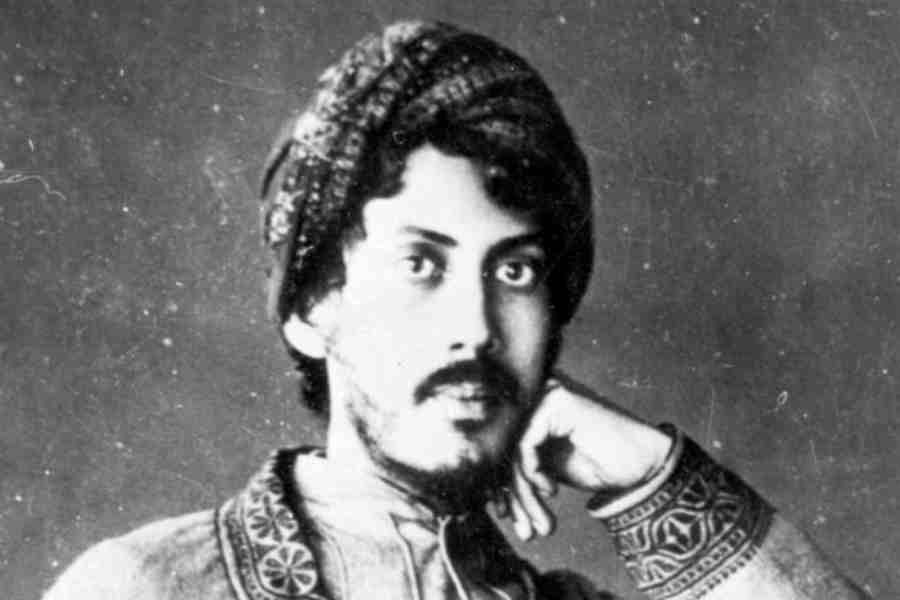After the sepoy mutiny, Bengal, specifically Calcutta, witnessed great transitions in society, politics, religion, and cultural explorations. The urban intelligentsia got acquainted with Western — mainly European — opera, musicals and the theatre. The Jorasanko Thakurbari took the lead in creating music and theatre that was markedly cross-cultural. Jyotirindranath Tagore, born in May, was the chief architect in achieving this cultural synthesis.
A genius could be a revolutionary or a conservative. Jyotirindranath was both at once. A master of the traditional style, he also absorbed the new currents of the 19th century. In a letter to his elder cousin, Gunendranath, Jyotirindranath wrote: “The origin of the Jorasanko Theatre, is now hidden in the deep folds of rustic antiquity!”
Jorasanko Theatre was housed in the ancestral residence of the Tagores. Pandit Ramnarayan Tarkaratna's play, Nabanatak, was staged in January 1867. It was Jyotirindranath’s stage debut. He played the harmonium in the overture and also appeared as the Nati (danseuse). The same year, a Hindu Mela was held to arouse nationalist fervour among the people. This passion found expression in Jyotirindranath’s play, Puruvikram. Set against the backdrop of Alexander’s conquest of India, it chronicled the valour of King Puru. Influenced by Alexandre le Grand, a play by the French playwright, Jean Racine, Jyotirindranath changed the plot to suit the taste of the nation.
Jyotirindranath ushered in his younger brother, Rabindranath, then just 14 years of age, to compose the theme song for his play, Sarojini. This was Rabindranath's maiden venture in composing lyrics. The very next year, Rabindranath made his debut in stage acting in Jyotirindranath's play, Emon Karma Aar Karbo Naa, which was adapted from two satires by Molière.
European travelling theatre companies used to visit Calcutta at the time. The rich tradition of Italian opera fascinated Jyotirindranath. He was also attracted to the romantic revolution in music in the West. His proficiency in Eastern and Western musical traditions was manifest in his creation of the raga, Italian Jhinjhit. This musical syncretism was reflected in his play, Ashrumati.
Jyotirindranath’s mastery of Sanskrit dramaturgy was evident in Manamoyee, which was later revised as Punarbasanta. He blended a traditional form with the theme of Shakespeare’s A Midsummer Night's Dream. He innovated the form of musicals to create the geetinatya.
Progressively, Jyotirindranath became disillusioned with life. Failing health and personal tragedies enhanced his sense of isolation. Gradually, the brilliance of Jyotirindranath was eclipsed by Rabindranath with his authoritative genius. But it can be argued that Jyotirindranath served his muse through a union of opposites. He was a romantic in expression but a classicist in technique. With a style that was simple, modest, human and rooted to the soil, Jyotirindranath straddled the twin worlds of music and theatre with amazing ambidexterity.










